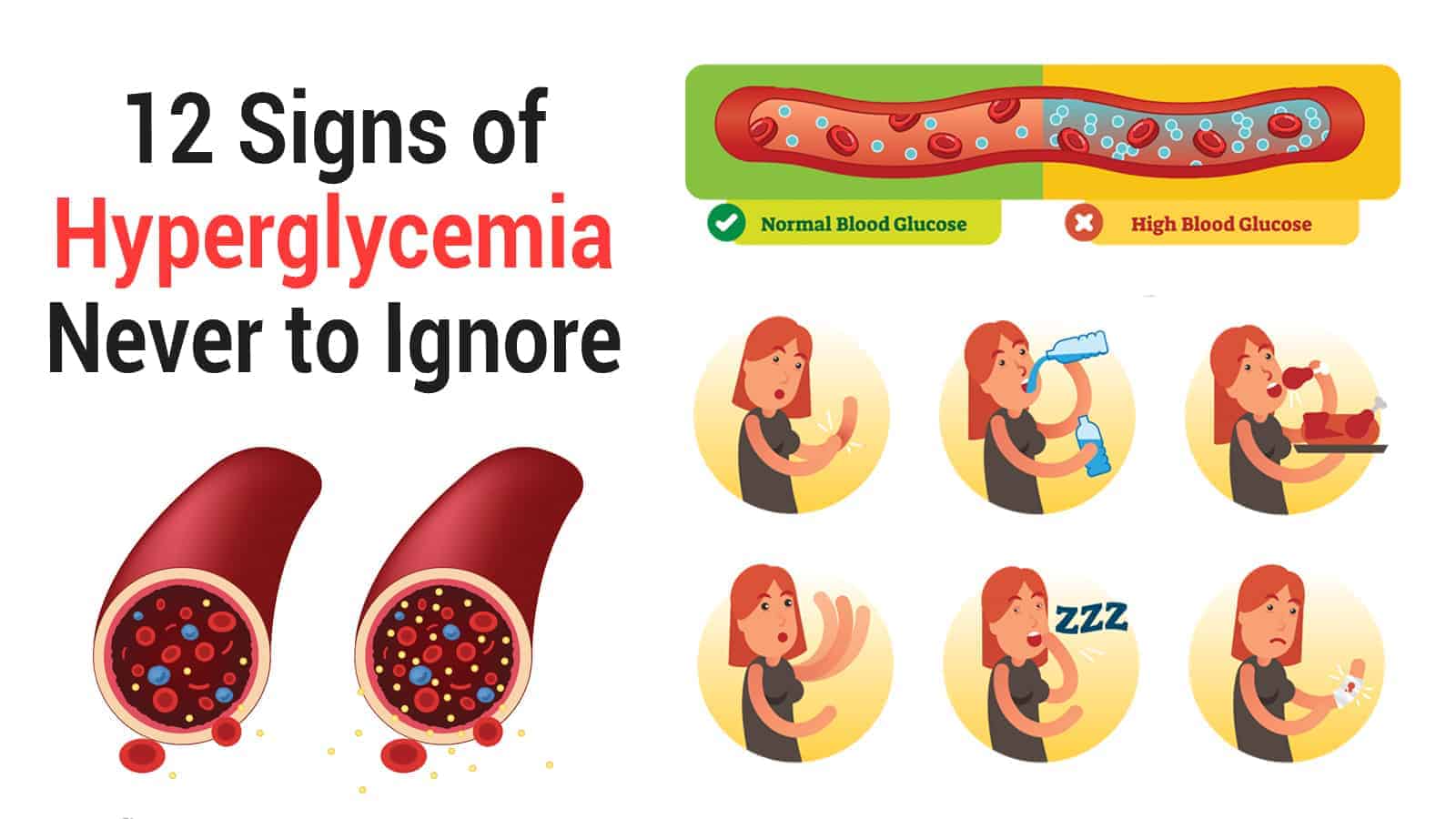Do you know the difference between the medical condition of hyperglycemia and hypoglycemia?
They are often incorrectly used interchangeably as they are both diabetic terms. But that is an inaccuracy. When you experience hypoglycemia, then you suffer from low blood sugar, and high glucose levels are hyperglycemia.
While diabetes gets all the credit for raising the glucose levels in your body, other conditions such as pancreatic cancer and Cushing’s Syndrome can also increase glucose. The foods you eat elevate your glucose, but it goes up and down regularly.
A typical sugar reading is between 70-100 for someone who is fasting. Once you eat a meal, your blood sugar levels can be anywhere from 100-140. Now, if you consume foods that are heavy in carbohydrates and sugar, then those numbers can go to 180 and beyond.
Understanding Hyperglycemia
When your sugar levels go over 140, then you start to get into the danger zone. Did you know that your body experiences nerve damage while your glucose levels are over 140? Hyperglycemia is high sugar levels, and it can cause all sorts of symptoms.
Your body uses sugar as a source of energy. When you have hyperglycemia, there is too much sugar flowing through your blood, which is just as dangerous as having too little.
Your body makes insulin to regulate your glucose levels, but if the pancreas isn’t making enough to keep up with your sugar, then your glucose level will increase. Here are some signs that your sugar levels are too high that you should never ignore.
1. Increased Thirst
One of the first signs that your glucose levels are too high is an increase in thirst. High levels of sugar in your blood slow down the production of your kidneys. They can’t filter the toxins like they can in a person whose blood sugar is regular.
You feel the urge to go to the bathroom more frequently, which is going to dehydrate your body. When you’re continually emptying your bladder, then you must replenish the hydration your system needs.
2. Concentration Difficulties
When your sugar levels are out of whack, then your concentration suffers. If glucose levels are abundant, then your brain can become foggy and even confused. Have you ever found that you read the same page in the book over and over?
It can be a sign that your glucose is off. Many people think they have ADHD or other attention-based conditions when it’s their sugar levels that need attention.
3. Constant Headaches
Do you suffer from debilitating headaches, and no over-the-counter treatment seems to help? Your glucose may be the culprit. Fluctuations in your glucose levels can cause a pounding headache.
The intensity of these headaches can be anywhere from slightly annoying to a severe migraine. Some people can’t even lift their heads from the pillow when their sugar levels are too high.
4. Dizziness or Feeling Off Balanced
Though dizziness is usually a problem that occurs with hypoglycemia, it can happen with hyperglycemia too. When blood glucose levels are higher than average, then a person must take insulin or oral medication.
The drugs can make the sugar level plummet, which causes dizziness.
The problem is a lack of glucose to the brain’s cells that triggers these weird sensations.
5. Chronic Fatigue
Many things can cause you to feel tired all the time. However, diabetes is one of them. Having too much glucose in your blood can slow down your circulation.
Sugar clumps when mixed with liquid and your blood becomes like sludge. Blood levels cannot circulate quickly, and the slow circulation can make you feel tired and cause inflammation in the body.
A person with diabetes has many things to overcome that can lead to exhaustion; for instance, their food doesn’t always give them the energy they need. Next, their blood is thick and unable to get where it needs to go quickly. Lastly, the high levels of inflammation tell the body that it must rest.
6. Weight Loss
Have you experienced any unexplained weight loss? In many cases, a person with diabetes is overweight. When you drop a few pounds, it’s probably a welcomed sight. However, there can be something sinister under the reduction.
The problem occurs when your body doesn’t have enough insulin. It needs something to feed to your cells, so it starts using the fat stores to keep everything functioning.
Eventually, your fat storage will deplete, and your body will not be able to maintain cell activity to keep you alive. Second, the rapid use of fat storage can cause the body to release ketones or a state called ketoacidosis.
Now, you shouldn’t confuse ketoacidosis with ketosis, which is the level that dieters wish to achieve in weight loss. Ketoacidosis is severe and means the body is releasing ketones, which are poisonous at high levels. Essentially, your blood becomes acidic, and you could die.
7. Blurred Vision
When your glucose levels are too high, then your vision is affected. People with diabetes have this problem because the sludge-like blood causes the eye to swell, and it takes away your ability to see correctly.
Have you ever heard about diabetic retinopathy? Eye swelling can decrease once sugar levels stabilize, but retinopathy is permanent damage. In this condition, the retina is not getting enough blood, so it becomes creative to get what it needs.
Your eye may create new blood vessels, and the condition can cause a plethora of symptoms, many of which rob your eyesight.
8. Sugar in the Urine
When sugar levels are abundant, then the body will try to rid them as quickly as possible to stabilize you. The best way it can discard the excessive sugar amounts is through your urine. Consequently, many medications on the market also work by flushing the sugar through the urine.
One of the tests that a doctor will conduct to check for sugar includes a urinalysis. This routine examination will check for an abnormally high level of glucose being pulled from the body.
9. Sores that Don’t Heal Properly
As your hyperglycemia continues to ravage your body, you may develop sores that won’t heal or are slow to resolve. The problem comes from impeded blood flow. The main area of concern is the feet, and lower legs are the blood that has a further distance to go to reach this region.
When your sugar is not being turned into energy, then your body cannot activate its healing properties. The result is the healing process is longer, and it leaves you susceptible to infections.
10. Frequent or Severe Infections
As the disease progresses, you can experience skin infections. Sadly, most people with hyperglycemia will battle severe toxicities during their life. Urinary tract infections are common in women, especially if there are high glucose levels in the urine.
The feet are the most worrisome place for contaminations since even a cut or scrape can turn into something more malignant. Women can also experience vaginal infections as the area is prone to high levels of bacteria.
The only way to prevent infections and eventually amputation of feet and toes is to keep sugar levels within the proper range.
11. Gastrointestinal Difficulties
Diabetes causes plenty of gastrointestinal challenges. The stomach and digestive system have nerves that can become damaged. When nerve damage occurs, it makes it extremely hard for the digestive tract to function as usual.
As a result, people with diabetes can suffer from irritable bowel syndrome, nausea, diarrhea, and incontinence. It’s also not uncommon for them to have problems with chronic nausea or vomiting, either.
12.Permanent Organ Damage
Finally, the result of diabetes is organ damage or failure. The high glucose levels in the body, along with nerve damage, can affect the major organs. You cannot live without a brain, heart, or kidneys.
To those who cannot maintain the proper sugar levels, then the result is death from organ failure. Your body must have stable glucose levels to thrive.
Final Thoughts on Reversing the Effects of Hyperglycemia
While the symptoms you can experience with diabetes is overwhelming, there is some good news. Did you know that since most diabetics are overweight, reducing your weight can cause sugar levels to regulate?
You can also control your glucose levels by watching what you eat. Diets high in sugars and carbs only acerbate the problem. However, when you cut these toxic foods from your life, you will notice a significant change in your energy and sugar readings.
Diabetes is often a genetic problem, and some people will fight this condition no matter how much they weigh. The best thing you can do is work with a nutritionist and eat natural, unprocessed foods that help keep your sugar in line.
Things like cinnamon, turmeric, and lemon water can help to keep glucose levels where they need to be without taking medications. Diabetes is a severe medical condition, but you can control it.

















 Community
Community

